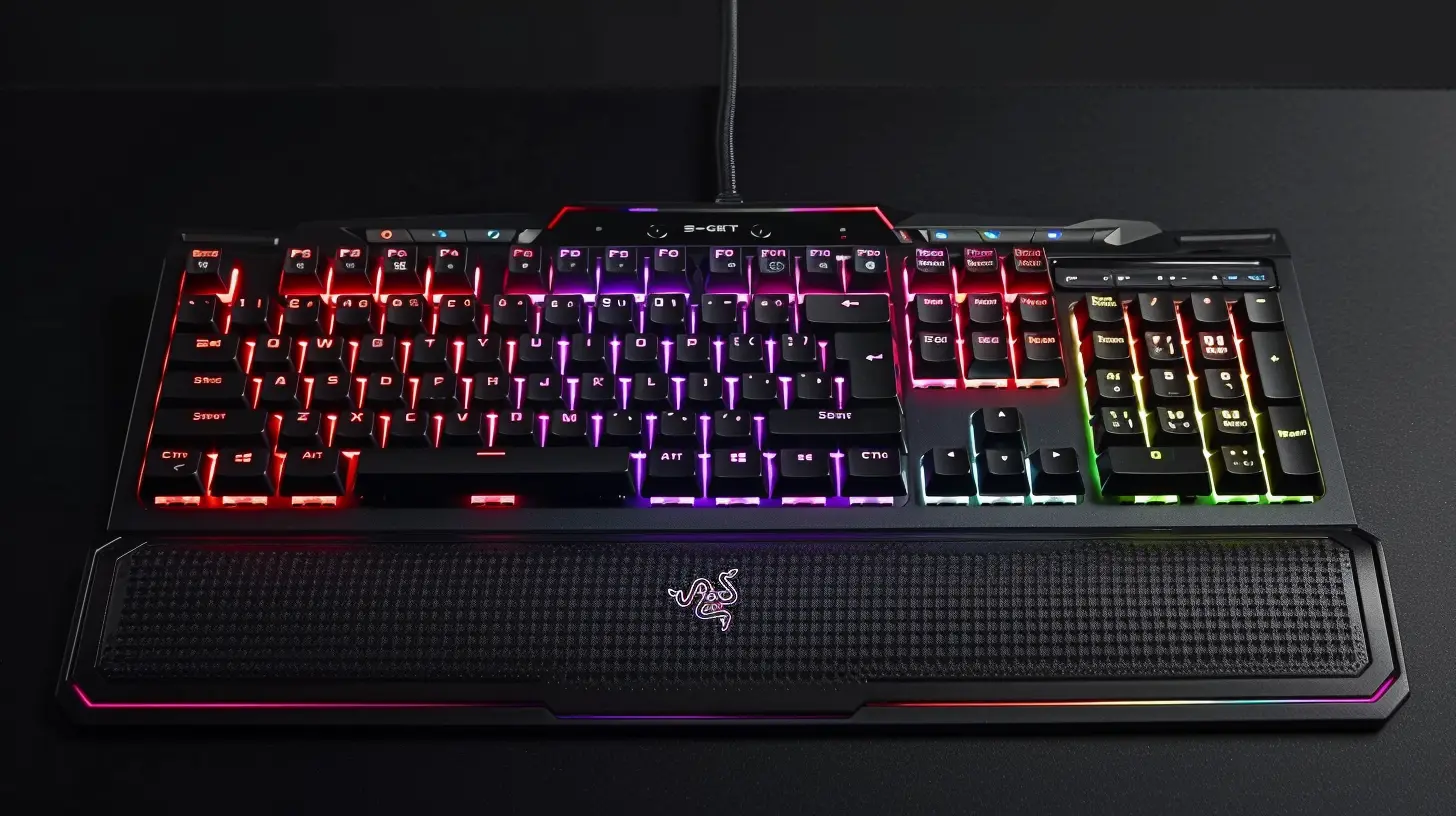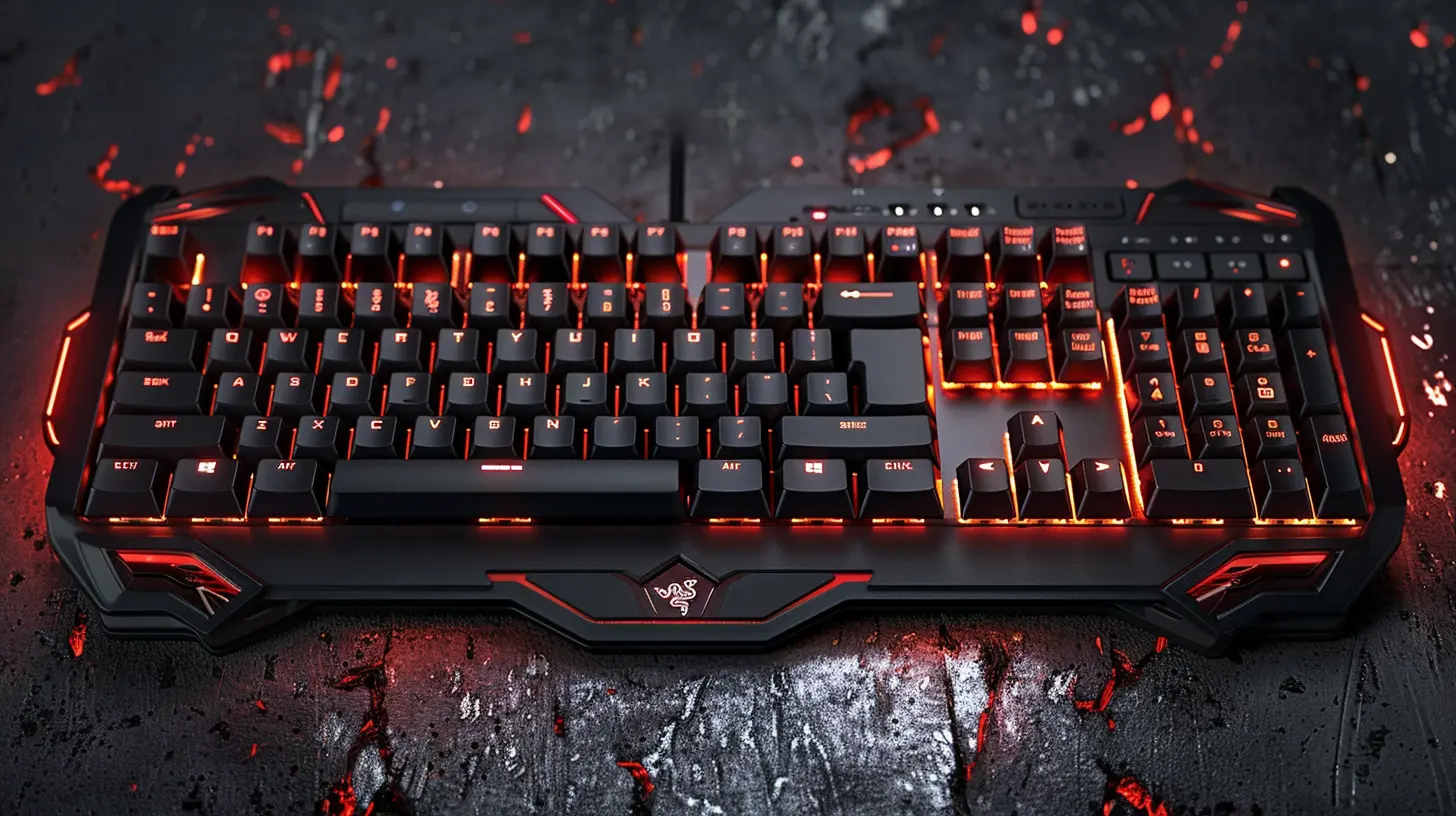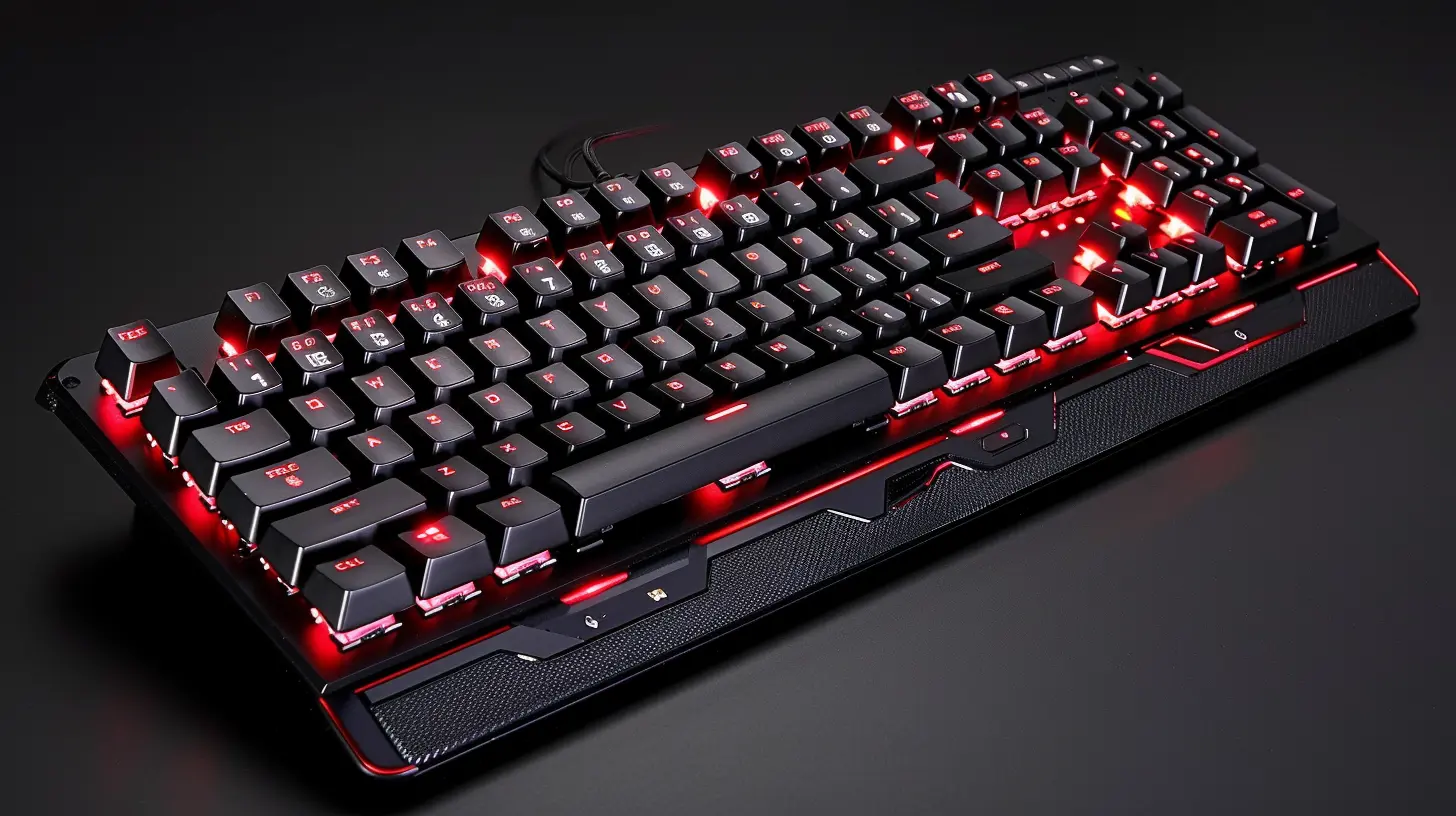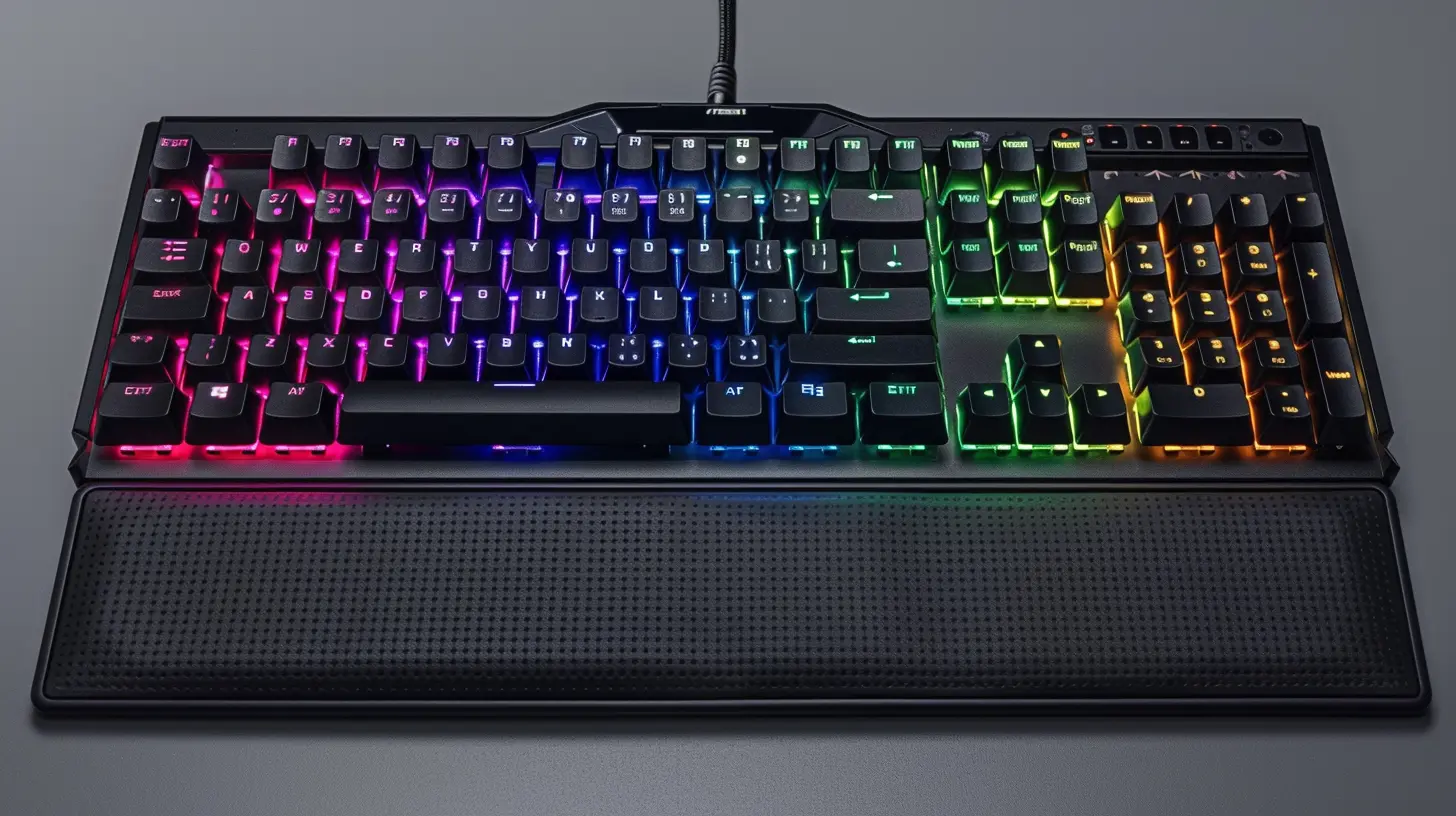Choosing the Right Gaming Keyboard for Your Setup
13 October 2025
When it comes to gaming, every little detail can make a difference. You've probably spent hours researching the best graphics cards, monitors, and even gaming chairs, but what about your keyboard? A gaming keyboard isn't just a tool to type; it's your control center, your direct connection to every action in the game. Whether you're firing off quick reflexes in a first-person shooter or mastering complex combos in a strategy game, the right gaming keyboard can give you a huge edge. But how do you choose the best one for your setup? With so many options out there, it can feel overwhelming. Let’s break it down and figure out exactly what to look for.

Why Your Keyboard Matters for Gaming
You might be wondering, "Why does my keyboard really matter for gaming? Can't I just use any old keyboard?" Well, technically, yes. But if you're serious about gaming, you'll quickly realize that not all keyboards are created equal. The right gaming keyboard can improve your reaction times, enhance your comfort during long sessions, and even provide extra features that give you a competitive advantage.Think of it like this: You wouldn’t wear dress shoes to play basketball, right? Sure, you could, but it wouldn’t be ideal. The right equipment matters, and a gaming keyboard is no different. Let’s dive into the key factors you should consider before buying.

Mechanical vs Membrane Keyboards
This is one of the most critical choices you’ll face. Gaming keyboards generally come in two types: mechanical and membrane.Mechanical Keyboards
Mechanical keyboards are often favored by gamers, and for good reason. Each key has its own mechanism, or "switch," giving you a tactile and auditory response with every press. This is where it gets fun—there are different types of mechanical switches, each offering a unique feel and sound.- Tactile Switches: These give you a small bump when the key actuates (registers the keypress). Great for those who want to feel exactly when a keypress is made.
- Clicky Switches: As the name suggests, these make a clicking sound when pressed. Perfect for those who love the satisfying "click-clack" noise. However, your roommates or family might not appreciate it!
- Linear Switches: Smooth and consistent with no tactile feedback. These are often preferred by gamers who need rapid keypresses without any resistance.
Mechanical keyboards tend to be more durable and responsive, which is why they’re the go-to option for serious gamers. They can be more expensive than membrane keyboards, but the investment often pays off in performance and longevity.
Membrane Keyboards
Membrane keyboards, on the other hand, use a single rubber dome that registers a keypress when you push down. They’re generally quieter, softer to the touch, and much cheaper than mechanical keyboards. The downside? They tend to wear out faster and lack the precise feedback that mechanical switches offer.If you're on a tight budget or don’t game very frequently, a membrane keyboard might be a good place to start. But if you're looking for something that can withstand countless hours of intense gameplay, it’s worth considering a mechanical option.

Key Switch Types: Which One Is Right for You?
So you’ve decided on a mechanical keyboard—awesome! But now comes the next big decision: which switch type should you go for? There are several popular options, and each has its own pros and cons depending on your gaming style.- Cherry MX Red: These are linear switches that are ideal for fast-paced gaming. They require little force to actuate, allowing for quick and smooth keystrokes.
- Cherry MX Blue: Known for their loud, clicky sound and tactile feedback, these are great for people who want to feel (and hear) every keypress. However, they might be too noisy for some.
- Cherry MX Brown: A middle-ground option, these switches offer tactile feedback without the loud click. They’re versatile, making them a good choice for both gaming and typing.
- Razer Green: Similar to Cherry MX Blue, these switches are clicky and tactile, designed specifically with gamers in mind.
- Razer Yellow: These are linear and quiet, much like Cherry MX Red, and are perfect for those who need rapid-fire keystrokes.
Take some time to think about how you game. Are you someone who prefers quiet precision or loud, satisfying clicks? Are you more likely to be typing or spamming keys in the heat of battle? The answer to these questions will guide your decision.

RGB Lighting: Aesthetic or Functional?
Let’s be honest: a lot of us are suckers for RGB lighting. It looks cool, and who doesn’t love a keyboard that glows in every color of the rainbow? But aside from the aesthetic appeal, RGB lighting can actually serve a functional purpose in gaming.Some gaming keyboards allow you to customize the lighting to highlight specific keys, like your WASD keys or your number pad. This can be especially helpful in low-light environments or when you’re playing a game that requires you to memorize complex key combinations.
Keep in mind, though, that not all RGB lighting systems are created equal. Some keyboards offer full per-key RGB customization, while others only allow preset lighting zones. If lighting is important to you, make sure you go for a keyboard that offers the level of customization you want.
Size and Layout: Full-Sized, Tenkeyless, or Compact?
Another important factor to consider is the size of your keyboard. Gaming keyboards generally come in three main sizes:Full-Sized Keyboards
A full-sized keyboard includes all the keys you’re used to, such as the number pad, function keys, and arrow keys. While this is great for general use and certain games, it takes up a lot of desk space. If you have a large desk and frequently use the number pad, this could be the best option for you.Tenkeyless (TKL) Keyboards
A tenkeyless keyboard drops the number pad, making it more compact while still offering all the essential keys. This is a popular choice among gamers who want more room for mouse movement, especially in FPS games where precision is key.Compact Keyboards (60%, 65%)
Compact keyboards trim off even more keys, including function keys and sometimes even the arrow keys. These keyboards are favored by minimalists and gamers who want something ultra-portable. However, the lack of certain keys can be a dealbreaker for some.When choosing a size, think about the games you play and how much space you have on your desk. If you’re constantly reaching for your mouse or you have limited desk space, a smaller keyboard might be the way to go.
Additional Features to Look For
Now that we’ve covered the basics, let’s talk about some extra features that can take your gaming keyboard to the next level:Programmable Macros
Many gaming keyboards come with extra keys that you can program to perform specific actions. These are called macro keys, and they can be a game-changer in complex games where quick reactions are crucial. For example, you could assign a macro key to perform a series of in-game actions with a single press, saving you valuable time.Anti-Ghosting and N-Key Rollover
Ever pressed multiple keys at once, only to find that some of them don’t register? That’s ghosting, and it can be the bane of any gamer’s existence. Gaming keyboards with anti-ghosting and N-key rollover ensure that every keypress is registered, no matter how many keys you press at the same time. For fast-paced games, this feature is essential.Wrist Rest
If you’re going to be gaming for hours on end, ergonomics matter. Some keyboards come with detachable wrist rests to provide extra comfort during long gaming sessions. If you suffer from wrist pain or fatigue, this is definitely something to consider.Wired vs Wireless Keyboards: Which Is Better?
Ah, the age-old debate: wired or wireless? Both have their benefits and drawbacks, and the right choice largely depends on your priorities.Wired Keyboards
Wired keyboards are generally preferred by hardcore gamers because they offer a stable, lag-free connection. There’s no need to worry about battery life, and you’ll never experience input lag or interference. If you’re playing competitive games where every millisecond counts, a wired keyboard is probably your safest bet.Wireless Keyboards
Wireless keyboards offer the benefit of a clean, clutter-free setup. They’re perfect if you prefer a minimalist desk or need to move your keyboard around frequently. However, they can sometimes suffer from input lag or battery issues, which can be a dealbreaker for competitive gamers. That said, technology has come a long way, and high-quality wireless gaming keyboards are becoming more reliable than ever. Just be prepared to pay a bit more for a good one.
Conclusion: What’s the Best Choice for You?
At the end of the day, choosing the right gaming keyboard comes down to your personal preferences and gaming style. If you’re all about precision and speed, a mechanical keyboard with linear switches might be your best bet. If you’re on a budget or prefer something quieter, a membrane keyboard could do the trick.Consider the size, layout, and extra features that matter to you. Whether you need RGB lighting to match your setup, macro keys for complex combos, or a compact design for more mouse space, there’s a gaming keyboard out there that’s perfect for you.
So, take your time, do your research, and choose a keyboard that will enhance your gaming experience. After all, your keyboard is more than just a tool—it’s your gateway to victory.
all images in this post were generated using AI tools
Category:
Pc GamingAuthor:

Kira Sanders
Discussion
rate this article
1 comments
Bernadette McGuffey
“Choosing a gaming keyboard is like picking a sidekick for your digital adventures! Will it be a silent ninja or a clicky bard? Choose wisely, brave gamer!”
October 13, 2025 at 10:41 AM

Kira Sanders
Absolutely! Your keyboard is your trusty companion; pick one that matches your playstyle for the ultimate gaming experience!


